Sustainable business practices driving print industry growth
The leader of PwC’s global sustainability services practice, Malcolm Preston, presents arguments we in the commercial printing industry should carefully weigh: Does sustainability represent both measurable risk and opportunity; is it merely irrelevant; or, worse, is it an impediment to growth, productivity and financial performance?
08 Jun 2018 | By PrintWeek India
Preston’s analysis is wide-ranging and worth the read. But at its crux, he makes the case that businesses need to develop what he calls ‘an enlightened business strategy’ that becomes the foundation to bolster a business’s long-term success.
At Kodak, we could not agree more. It’s not only a core element of how we run our business, but we see it as an essential tenet of a thriving print industry. Kodak is among a growing roster of global companies who’ve developed a policy framework around the environmental, social and financial imperatives of sustainability. We call it the Triple Bottom Line. It’s about evaluating performance more broadly to create greater long-term business value by delivering benefits to printers, the print industry and society at large.
Our CEO, Jeff Clarke, makes the point often that ‘it’s foundational at today’s Kodak’. From a product perspective, the company designs for environmental performance. Each time Kodak develops a new product, we take efficiency into account, beginning at the primary design phase of every product. Because of this, we were the first company to successfully commercialise a printing plate that uses no processing chemicals and has firmly established a reputation for a packaging printing system that enables exceptional print quality in addition to environmental performance.
In pre-press, our Computer-to-Plate (CTP) solutions enable printers to produce printing plates with extremely accurate and sharp images, quickly and with minimal waste. The newest models offer significant power savings – using up to 95% less energy while imaging than competitive solutions -- without compromising productivity or uptime. In the digital realm, the Kodak Nexpress platform and our Prosper presses enable efficient short-run production, targeted customised printing, and inks that do not contain VOCs or are water-based, among many other benefits, that all work to minimise over production, waste and environmental impact.
For example, the Nexpress HD Dry Inks and Prosper press (with Stream Inkjet Technology) inks and fluids have been evaluated against and meet the requirements of EU framework regulation No. 1935/2004 of the European Parliament and of the Council of 27 October 2004 on materials and articles that are likely to come into contact with food for indirect printing on food packaging. They also meet the requirements of EC Toy safety directive No 2009/48, as demonstrated by compliance with EN 71 part 3 (2013): Migration of certain elements, as amended.
We are also setting a new sustainability standard in packaging printing with the Flexcel NX System, which opens the door for brands and printers to take advantage of more cost-effective and sustainable print processes. The plates cut down on waste with faster press start-ups and fewer stoppages. Kodak’s NX advantage technology reduces ink usage, transfers ink much more efficiently, uses water-based inks, optimising print performance.
The specific outcomes of these product innovations are tangible for printers. We talk to a lot of printers around the world about the factors that compelled them to become more sustainable. While they all expressed a desire to reduce their environmental footprints, the driving force is very clear –NX simply makes good business sense, whether it’s implementing new ways to reduce waste, lower energy consumption, conserve water, or utilise innovative products to reduce harmful emissions.
For Malaysia’s Vivar Printing, sustainability permeates their operations and is at the centre of the company’s continuous efforts to improve the business. In the pressroom, they use vegetable-based inks, alcohol-free solvents, and sustainably sourced recycled materials and they also re-use printed papers up to five cycles during the early stages of make-ready, saving tons of paper every quarter. When they look to invest in new technology, business sustainability is at the heart of their decision-making process.
“The integration of Sonora process-free plates into our pre-press operation has meant that we have not only eliminated our processor and all the chemical waste associated with the machine, but we are running a leaner more efficient plate making process. That’s good for our business, our customers, and the environment,” commented Cheong Kok Wai, managing director of Vivar Printing.
Druckerei Lokay, a family-owned commercial printer based in Reinheim, Germany invested several million euros in environmentally friendly technology, including Sonora plates, and the ecological restoration of their facility. It’s a big investment that has had a significant impact. They offer climate-neutral printing, and their total CO2 emissions were reduced by 62% in 2014, part of the reason why Lokay’s production site is one of the most sustainable in the world. It’s also winning them more business.
“The German marketplace is very demanding of operational sustainability from its suppliers. Lokay also works with a lot of governmental institutions and NGOs, and they especially want partners with sustainable factories – it’s a mandatory condition in many cases,” said Ralf Lokay, CEO and owner of Druckerei Lokay. “They only use printers like Lokay. So being a sustainable company is an important business advantage for us, and we are often selected because of it.”
The collective impact from over 3,000 printers like Lokay and Vivar using Sonora plates are stunning. Kodak projects that the print industry could save up to 2.73 million litres of plate developer, 139 million kWh of energy and 360 million liters of water per year by using Sonora plates instead of traditional wet-processe plates.
Examples like these are becoming increasingly common across the print industry and on every continent. It’s why we continue to believe our investments in sustainability are fundamental to Kodak’s success and a pivotal driver of a thriving print industry.
Richard Szembrot PE is the director for health, safety and environment at Eastman Kodak Company



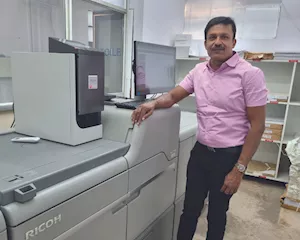
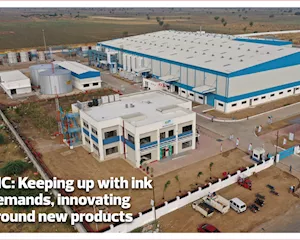
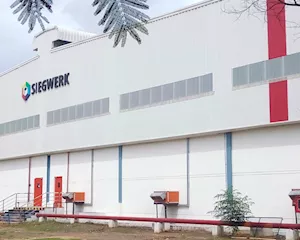
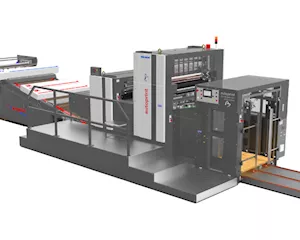
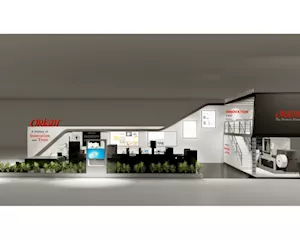






 See All
See All